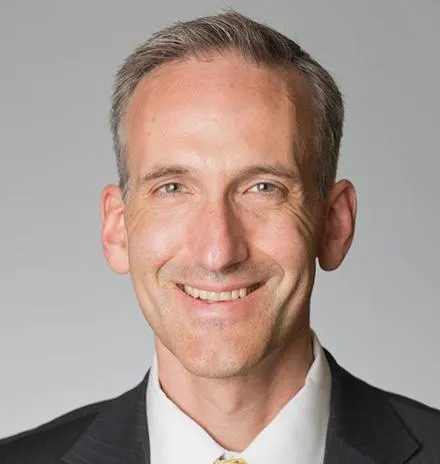
Debt collectors aren’t perceived as providing great
service to debtors.Source: BrianAJackson
On the list of industries known for great customer service, debt collection is far from the top—and may not even be on the list at all. “It’s usually a business that is very adversarial with customers,” says Harvard Business School Professor Dennis Campbell. “In fact, to even think about a debtor as a customer is unusual.”
Thus, Campbell was intrigued when he heard about a debt collection company in Turkey that not only treats debtors as customers, but actively tries to help them turn around their relationship with money.
The company, Turkasset, has been successful with its heterodox techniques, giving it a competitive advantage over rival debt collection firms. What’s more, it has also provided a boon for companies who held the debt in the first place, by improving their reputation in the eyes of both their consumers and regulators.
“Usually, with debt collection, the object is to dial for dollars—collect as much as you can in the first phone call, and then outsource the work to the legal system,” says Campbell, whose research focuses on how companies can better design themselves around customer needs. “This company says, instead of being a debt collector, we are going to be a debt resolver.”
Instead of doing one three-minute call with each customer, they were doing 15 to 20 calls lasting 15 minutes each
Turkasset was formed in the wake of the financial crash in 2009 out of a consortium of asset management companies (AMCs) that included the Turkish branch of Lehman Brothers. When Lehman went bankrupt, Turkasset acquired a $200 million portfolio of non-performing loans (NPLs). After that, it continued to acquire more debts from other banks who sold off their own NPLs—including mortgages, credit cards, and car loans on which customers had defaulted.
“At a certain point, it becomes clear to banks that they can’t collect without a lot of effort, so their choice is to write the loan off completely, or sell it at a deep discount to one of these asset management companies,” explains Campbell, the Dwight P. Robinson Jr. Professor of Business Administration. “The banks get to clean up their balance sheets, while the AMCs now assume all the risk.”
Culturally, debt is seen as a source of shame and disgrace in Turkey, where a commonly held value is that “one does not die indebted.” AMCs in the country have traditionally used that sentiment to their advantage, putting the screws on debtors with a hard-sell tactics to squeeze as much payment out of them as possible.
Start with the debtors
Turkasset’s new CEO, Hilmi Guvenal, decided to try a different approach. A turn-around artist who had saved many companies from financial distress, Guvenal started by learning as much as he could about Turkasset’s debtors. He and his team discovered many of them were small-business owners suffering from poor credit or difficulties in managing working capital, but with enough time they could turn themselves around and become profitable again.
The company developed a soft approach, training its employees to develop relationships with customers, learning about their individual circumstances and counseling them on how they could best get out of debt. “Instead of doing one three-minute call with each customer, they were doing 15 to 20 calls lasting 15 minutes each,” says Campbell. “So, they might be spending five hours with each customer before getting any money.”
The approach required a complete overhaul of the way AMCs typically do business. In an industry that normally sees 65 percent turnover, Turkasset became choosy about its employees, hiring less than one in 100 applicants. Once hired, it paid them higher salaries and performed more in-depth training.
The investment paid off, dropping the turnover rate below 30 percent. As the business model developed, Turkasset began opening physical branches around the country to service customers who preferred to talk in person.
Despite these additional outlays, the gamble paid off for the company by allowing it to collect a much higher percentage of the amount owed to them—as well as collect on loans other companies would never even touch because they considered them too risky. Within five years, the company had grown its portfolio to over $2 billion in NPLs from over 700,000 customers, becoming a prominent player in the Turkish NPL market.
Long-term benefits
While it remains to be seen whether Turkasset’s short-term financial success will substantially outpace that of companies employing more traditional techniques, says Campbell, there are several other long-term benefits that show the advantages of their alternative approach.
First, in a regulatory environment that has tilted toward consumers in recent years, Turkasset has been ahead of the curve in avoiding a government crackdown—with a customer complaint rate of only 2 to 3 percent. (For context, the Consumer Financial Protection Bureau in the United States receives more than 6,000 complaints monthly regarding excessive calls and deceptive practices by debt collectors and has recently taken high-profile enforcement actions against several firms.)
Second, in the mind of consumers, Turkasset’s kinder and gentler approach reflects back on the banks that originally held the debt. “Where its approach is unambiguously better is in managing reputation risk,” says Campbell. “The customer doesn’t necessarily make a distinction between a bank and the abusive debt collector trying to collect on the loan.” As a result, he says, “banks are now thinking very carefully about who they will sell their portfolio to.” If customers have a good experience with a debt collector, it reduces the risk of regulatory scrutiny and may incline them more toward doing business with the bank again in the future.
Lastly, Turkasset’s methods are better for employees, as well, who see themselves as performing a mission to help customers fulfill a need and overcome their shame, giving them a sense of purpose in the office that leads to better morale. Indeed, Turkasset has routinely made “best place to work” lists in Turkey, an unheard-of distinction for a debt collection agency.
Total change required
For all of these reasons, says Campbell, some traditional debt collection firms have begun looking at how to change their collection practices to incorporate a more collaborative approach. As Turkasset’s case shows, however, that transformation is not something that can be done by halves. Reframing an organization to think of debtors as customers requires a total change in organizational identity.
Moving from an environment that is adversarial to one that is co-creating value with customers requires a company to carefully coordinate systemic changes in many areas—from defining its core values to how it measures, communicates, and rewards employee performance, says Campbell. While that may be hard to do, it may also be worth it, with positive benefits for the company, its clients, its employees, and its customers.
“It’s these very changes that can provide a competitive advantage,” says Campbell, “that can improve both the bottom line and customer experience.”
Related Reading:
What Customers Want from Your Products
How Much Time Should CEOs Devote to Customers?
Break Your Addiction to Service Heroes

